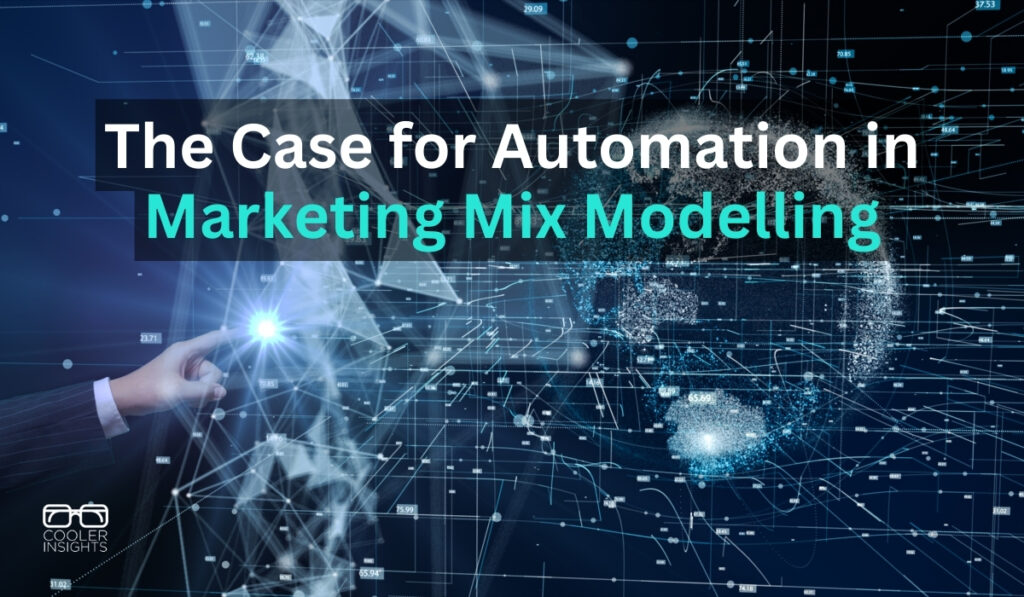
Heard of the Marketing Mix (MM)? Well, most business students would be familiar with the 4 Ps — Product, Price, Place, and Promotion.
However, do you know that artificial intelligence (AI) can be used to power up your Marketing Mix Modeling (MMM)?
Since its onset, AI has improved every aspect of MMM, offering a more accurate and cost-effective marketing approach for businesses everywhere.
While human insights remain essential, AI’s numerous capabilities have streamlined how marketers implement MMM. Simultaneously, it has maximised ROIs, making it a powerful tool in MMM systems.
What Is Marketing Mix Modeling?
MMM is a statistical analysis technique used to estimate the impact of various marketing activities on sales and other KPIs. Campaign data can help you understand the effectiveness of different marketing channels, such as TV, radio, print and digital advertising.
This analysis enables businesses to allocate their marketing spending more effectively, ensuring they direct their funds toward the most impactful activities.
How Marketing Mix Modeling Works
MMM involves collecting data on various marketing activities and their corresponding outcomes. This data typically includes information on marketing spending, sales figures, and external factors such as economic conditions and seasonality. Using statistical techniques, MMM quantifies the relationship between marketing efforts and business outcomes.
With this information, you can use the model to run scenarios and predict the potential impact of different marketing strategies. As such, marketers can make investment decisions based on the results.
The Growing Importance of Marketing Mix Modeling
MMM offers a broad view by analyzing the data across multiple channels and factors. It makes an essential tool for marketers, especially as the digital world becomes more fragmented. Some companies rely on multi-touch attribution (MTA), which focuses on tracking individual customer journeys.
However, MTA relies heavily on digital interactions, which can be limited by privacy regulations and the removal of third-party cookie tracking. Plus, traditional offline marketing channels are still highly active today, with markets like printed signage projected to reach $41.4 billion by 2028. Thus, these offline customer touchpoints are still a vital part of the customer journey to consider.
With MMM, you can gain a better overview of marketing efforts when considering both online and these offline channels, allowing you to better adapt to changing market conditions.
How AI Automation Works in Marketing Mix Modeling
As marketing becomes more complex, businesses see the advantages of automation on MMM. AI boosts MMM in several ways.
Simulate Budget Allocation
AI enables marketers to create budget allocation scenarios to test different strategies before implementation. With historical data and predictive algorithms, AI can forecast potential outcomes of varying budget distributions across marketing channels.
For instance, Quantzig has a Marketing Budget Optimizer tool that has been instrumental in helping companies allocate budgets. In fact, it has helped retailers achieve an 8%-10% increase in cost savings while increasing lead conversion rates by 30%. By using automation to find the most effective areas to spend marketing dollars, you can ensure your budgets drive maximum ROI.
Offers Predictive Analytics
Automation uses predictive analytics to allow marketers to anticipate future trends and outcomes based on past data. This feature is especially useful considering that 73% of Gen Z shoppers use TikTok to inform their purchase decisions and 70% of consumers are open to trying new brands.
With predictive analytics, marketers can learn how different marketing activities will impact sales and other performance metrics. As such, they can reduce uncertainties and plan more effectively for future campaigns.
Enables Real-Time Optimization
Automating MMM helps you make instant adjustments to marketing plans for enhanced effectiveness. With real-time capabilities, you can ensure your marketing efforts align with current market conditions and performance trends. Marketers can adjust their tactics continuously, helping them stay responsive and cater to the 62% of consumers who expect a personalized experience from brands.
The Pros and Cons of Automation in MMM
As AI becomes more heavily involved in Marketing Mix Modeling, it is important to understand its benefits and drawbacks.
Some of the pros of automation in MMM involve the following advantages:
- Time savings: Automation reduces the time required for data processing and analysis, allowing you to focus on the best decision-making.
- More accurate insights and predictions: AI-driven analysis minimizes human errors and can detect intricate patterns in data that marketers may overlook with traditional methods.
- Enables quick adjustments to marketing strategies: With real-time analysis, you can adjust marketing strategies based on performance trends.
- Scalability: Automation can handle large datasets from multiple sources, making it easier to scale MMM efforts as your business grows.
The cons of automation in MMM include:
- High initial investment: Implementing automation tools can require a hefty upfront investment in technology.
- Data quality dependency: The more quality of the data you feed an AI model, the more effective it becomes. However, reaching quality data requires cleaning, which can take 60%-80% of the time on average.
- Loss of human insight: While AI provides many advantages, an over-reliance on automation may lead to a lack of human intuition and creativity in decision-making.
Implementing Automation in Marketing Mix Modeling
Integrating automation tools into marketing mix modeling can enhance your approach to strategizing. While there are challenges to consider, the potential benefits make it a valuable investment for any forward-thinking marketing team. Consider using an AI-driven MMM to get one step ahead of your competitors and see how it can boost your ROI.

Eleanor Hecks is editor-in-chief at Designerly Magazine. She was the creative director at a digital marketing agency before becoming a full-time freelance designer. Eleanor lives in Philly with her husband and pup, Bear.

great content! informative read